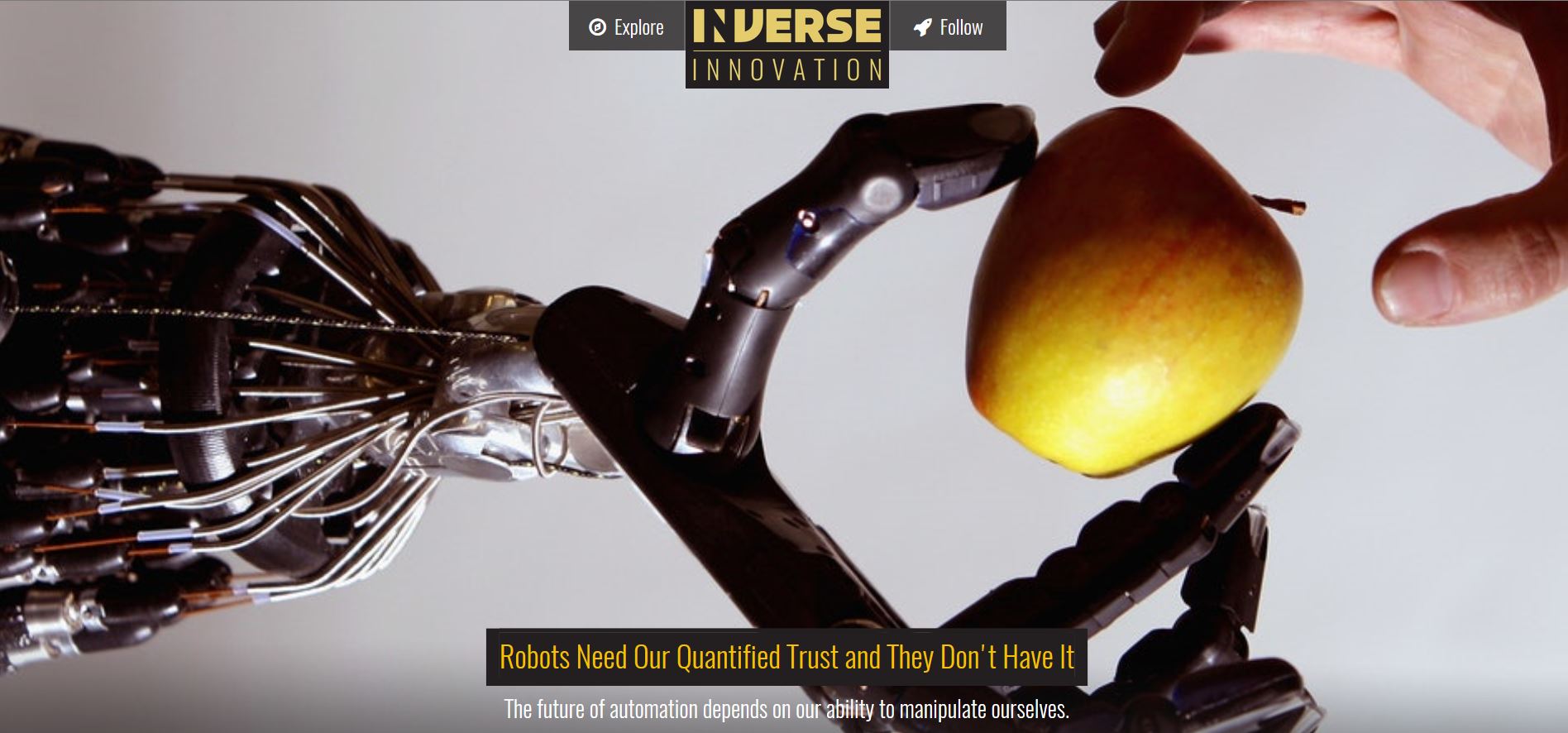Robots and Trust Issues

Florian Jentsch was cited in an Inverse article titled ‘Robots Need Our Quantified Trust and They Don’t Have It.’
The expertise of Florian Jentsch, Ph.D., associate dean of the College of Sciences at the University of Central Florida, was recently cited in an article on the Inverse web site.
Jentsch, a psychology professor at UCF with a joint appointment in the Department of Psychology and the Institute for Simulation and Training, specializes in human-automation research.
The article, Robots Need Our Quantified Trust and They Don’t Have It, discusses the trust issue humans have toward robots. According to the article, trust wasn’t crucial to understanding robotics and automation until robots became capable of performing complicated tasks. Now that machines are being used for more advanced operations, such as helping an engineer prototype a flying car or helping an elderly person into bed, the relationship between human and machine is more important than ever.
“Humans use trust in all our interactions and that’s true with even regular machines,” said Jentsch. “What is unique and different here is that we believe that artificial intelligence and robotics development is at the cusp of moving away from something that’s really a tool, and toward something that’s a teammate or a coworker.”
The Inverse article emphasizes the importance of developing robots that seem more trust-worthy to humans. In order to accomplish this task, the design requires specific expertise and a new approach.
Instead of going the traditional route of having people design robots based off what they can and cannot do, robots should be designed with the robots’ movement and behavior in consideration. A focus on what the robot looks like it’s doing and how it seems to be going about a given task become essential in developing trust from the user.
The mobility and flexibility of robots play major roles in the trust issue that humans have toward them, Jentsch explained.
“A robot can move. It has the capability to hit you, to drive into you, and to do bad things,” he said. “Because of this realization, communicating the robot’s purpose and competence through its behavior becomes the design goal. But the engineering that’s required for this development is not an easy task.”
Jentsch has been involved in human-automation research since the early 1990s. In the early 2000s, he was approached by a funding agency to bring his expertise to human-robot teaming. Since 2003, Jentsch and his students at UCF psychology’s Team Performance Laboratory have been conducting research in human-robot interaction (HRI).
“We have studied how automation capabilities in robotics affect human interaction with robots and team task fulfillment,” Jentsch said. “Especially how the mental models that human teammates hold about robots affect the team’s situation awareness, the teammates’ trust in robotic team members, and the team’s task performance.”
Jentsch is the technical area lead for HRI research and the institution lead for UCF in the Robotics Collaborative Technology Alliance. UCF, represented by researchers from the Institute for Simulation & Training (IST), College of Arts & Humanities (CAH), College of Engineering and Computer Science (CECS), and College of Sciences (COS), is the lead institution for HRI on this project, which is now on its eighth year and will likely continue until 2020.
“We study how we can transition robots from tools to teammates by investigating how people think of and interact with robots, how robots can understand people and their relationships better, and how we can have more natural communications, including speech and gestures, when interacting with robots,” Jentsch explained.
With continued technological advancements, the capability of robotics is growing. According to Jentsch, the use of robots for specialized applications in areas such as manufacture, aerospace, and military will carry into other settings like agriculture, health care, and retail, among others. He also believes robotic technologies will move from these specialized applications to mainstream, everyday settings.
“In the same way we see smartphones changing and continuing to change the relationship among people and between people and information,” Jentsch said, “we will learn not only about the potential, but also the limits, of robotics technologies in everyday life.”
As for robotics becoming extremely human-like and incredibly capable, as they’re commonly seen in film and television, Jentsch says technology is just not there yet and will only gradually approach those depictions, a topic he delves further into in his piece, What’s Next.
To Jentsch, the future of robotics is exciting, yet uncertain in how it’ll be welcomed into our lives.
“It’s going to be very interesting, not just as far as technology is concerned, but also with respect to the way robots will be woven into the social fabric.”
